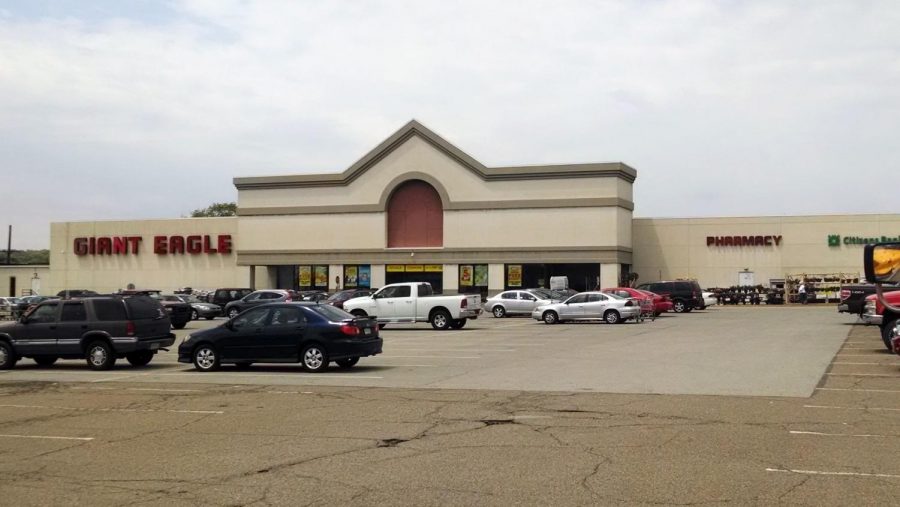Editorial | Store closures on Thanksgiving should be standard
Giant Eagle in Economy, Pa., on June 26, 2015.
November 5, 2021
Many companies, including major retailers like Walmart and chain grocery stores like Aldi, will be closed for Thanksgiving Day. Giant Eagle joined them on Wednesday, announcing its closure as a “thank you” to employees after another pandemic year.
The first thing that comes to mind as a consumer might be the inconvenience of Thanksgiving Day closures, since rushing to get a turkey last minute might as well be part of the holiday itself. But for employees, this is hopefully the beginning of holidays being relaxing days off rather than the most stressful work days of the year.
Workers deserve to be home for the most family oriented holiday of the year, and it seems that companies are recognizing that. But to say that these corporations are simply doing their workers a small favor and moving on would not do justice to the impact of COVID-19 on frontline workers, and the baseline of exploitation involved in wage labor.
Job losses early in the pandemic hit low-wage workers the hardest, and as the economy continues to recover those same positions have been the slowest to return. Also, retail, fast food and other occupations that involve frequent and close contact with others put their workers at an elevated risk of contracting COVID-19 relative to more lucrative jobs. Only 59% of service workers have access to paid sick leave as of April, and part-time workers, some of whom work in this industry, have even less access.
Many of these workers have faced a series of terrible choices during the pandemic. Ability to work from home is correlated with income, and given that average wages for retail workers remain below $15 an hour, it’s unlikely that this was an option for many of them. If these employees would like to keep their jobs, they are forced to come into the workplace, risking contracting COVID-19. If they do get sick, some aren’t even compensated for the time spent recovering.
The brutal physical and financial toll of the pandemic on low-wage workers is well documented. Not to be cynical, but there’s almost certainly an aspect of public relations clean-up to these well-publicized Thanksgiving Day closures, at least for larger corporations. There’s also continued pandemic-related supply chain issues, which offers an extra incentive to close in preparation for the next day — Black Friday, the busiest shopping day of the year.
Regardless of intentions, closing for Thanksgiving is a well-deserved break for retail workers. This “thank you” shouldn’t be a one off. Closures should be expanded to other broadly celebrated holidays such as Christmas, and workers should be able to take time off for whatever they choose to celebrate.
This single day of widespread closures could just be companies throwing workers a bone after nearly two incredibly difficult years. Perhaps, a bit more optimistically, it’s yet another gain for an American workforce that’s increasingly realizing its power, and seeing results.








